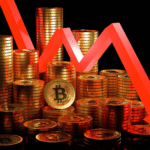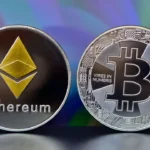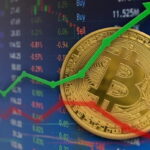With institutional involvement and government scrutiny creating waves in the market, the scene of cryptocurrencies keeps changing. One of the most important changes in the space lately is Coinbase’s request for permission to start XRP future trading. This change in approach follows numerous important choices on XRP’s legal status and possible inclusion in conventional financial markets. Should this be approved, this might be a turning point for the crypto market since it will allow other big businesses in the sector to provide such goods and services, hence opening possibilities. Leading bitcoin exchange provider Coinbase wants to expand its products while negotiating a changing legal climate that has especially proved difficult for XRP of Ripple.
Coinbase Seeks XRP Future Boosting Crypto
One of the most well-known bitcoin exchanges, Coinbase formally asked the Commodity Futures Trading Commission (CFTC) permission to provide XRP future contracts. The action emphasises the growing need for controlled crypto products and the acceptability of digital assets in conventional financial markets. Futures trading lets investors stake on the future price movements of an asset without really owning the underlying asset. XRP futures would provide Coinbase a fresh way for market players to hedge, gamble, or diversify their bitcoin investments.

Given XRP’s continuous legal conflict with the U.S. Regulatory uncertainty about XRP exists thus. It does, however, reflect Coinbase’s faith in XRP’s future and possible significance in conventional financial markets. Over the years, XRP has confronted several difficulties, especially with the SEC lawsuit labelling the coin as a security. But Coinbase’s choice to seek future trading permission points to the company’s belief in the asset’s future viability and its chance to profit from demand.
XRP’s Legal Environment Crucially Important Factor
One of the most watched features of the crypto scene is the continuous legal fight between XRP issuer Ripple Labs and the Securities Exchange. XRP is claimed by the SEC to be a security and, so, subject to its rules, a view ripple has angrily disagreed with. XRP is thus in a state of flux as the courts have not yet rendered a decision. The market performance and liquidity of XRP have been substantially affected by this ambiguity. Nonetheless, some legal professionals think that Coinbase’s attempt to list XRP futures points to hope for the case’s result.
Should the court find Ripple in favour, demand for XRP may rise, thereby rendering XRP a more appealing asset for derivative products such as futures contracts. Conversely, a decision in favour of the SEC can have disastrous effects on XRP, so making it less desirable asset for exchanges and institutional investors. Coinbase’s attempt to get approval for XRP futures shows that the exchange thinks the currency has enough potential upside despite the unsolved legal concerns to call for introducing futures trading.
XRP Boosting Institutional Crypto Investment
The acceptance of XRP futures would indicate a major change in the attitude of institutional investors towards the bitcoin market. Big financial firms frequently employ futures contracts as a means of risk management and portfolio diversification. Should XRP futures become generally accessible, the XRP market may get more institutional capital infusion. Over the long run, this would boost liquidity, lower volatility, and maybe steady the price of XRP.

Moreover, institutional investors who have been reluctant to commit to the digital asset because of legal issues could be more guaranteed of getting exposure using controlled futures contracts.Furthermore, XRP futures might inspire more general market interest in cryptocurrencies futures overall. Futures products let investors start investigating other big cryptocurrencies including Bitcoin, Ethereum, and Litecoin. This would cause a knock-on effect in the sector since more crypto derivatives would draw interest from conventional financial companies.
XRP’s Prospect in Conventional Financial Markets
For the coin, the possibility of XRP Price Surge joining mainstream financial markets might change everything. Because of its connections to Ripple Labs and the legal disputes over its classification, XRP has historically been among the more divisive cryptocurrencies. Still, XRP is starting to fit the larger financial ecosystem as interest in digital assets keeps rising. Approval of futures contracts would allow traders another way to get XRP exposure without having to acquire and keep the real unit.
Moreover, should XRP be able to effectively enter conventional financial markets via futures, this might cause a review of the legal environment for other cryptocurrencies. Many experts think that the entrance of big businesses like Coinbase into the XRP futures market could affect the legal status of other currencies, so offering a clearer road for further legislative decisions.
Conclusion
A historic event in the bitcoin scene, Coinbase’s attempt to provide XRP futures trading highlights the changing character of the market as well as the difficulties resulting from governmental approval. Should this be successful, this action could significantly affect XRP’s institutional acceptance, liquidity, price stability, and price consistency as well as open the path for more digital asset inclusion into conventional financial markets. Still, it’s important not to undervalue XRP’s ambiguous legal status or the regulatory obstacles surrounding future contract offering. The possible legalisation of XRP futures could act as a spark for more innovation and legitimacy in the crypto sector as Coinbase negotiates this complexity, therefore benefiting institutional investors as well as retail players.







